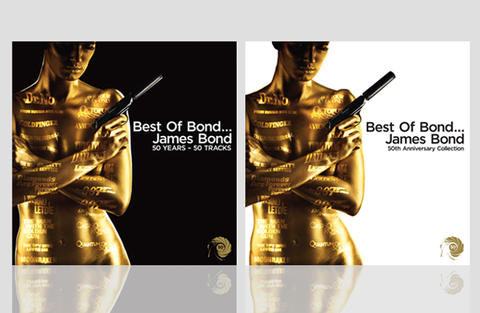This post is the third in a five part series.
Diamonds Are Forever
The 70s really was an ugly decade. The only thing uglier than Washington politics were Hollywood fashions. Bond films fared about in the same camp. After the lackluster performance of On Her Majesty’s Secret Service and the quick exit of George Lazenby, EON productions retreated to safer ground. They wooed back Connery and Guy Hamilton (the director of Goldfinger) to attract audiences back to 007. The result was a campy mess that would define the franchise for the decade to come. The music fared much better.
Shirley Bassey also returned with an entirely new vocal style. Setting aside the wail of the 60s that perfectly accompanied Goldfingers sassy brass notes, Ms Bassey crooned to Barry’s string-heavy, easy-listening Vegas-lounge ballad befitting the title “Diamonds are Forever” and the Vegas setting of the film. Add in a little “wacka-chicka” guitar for good measure, and you can almost smell the polyester on the dance floor. The song actually is beautiful and holds up well over time as a Bond song should, but it is an unquestionable departure from what had come before.
Live and Let Die
Connery wouldn’t stay with the franchise and another New Bond was recruited. TV spy Roger Moore stepped into bigger shoes and would become the franchise’s longest running 007. Live and Let Die was EONs first bold attempt to do something very, very different, admittedly still under the direction of Hamilton, whose Goldfinger chops were now completely absent. Our favorite Britsh Secret Agent starred in his own Blaxploitation flick and the score was, for the first time in franchise history, devoid of John Barry’s sounds. Former Beatles producer George Martin stepped behind the baton and recruited none other than Paul McCartney (now with Wings) to deliver a title track that would remain popular for forty years and counting. Arguably the best in the franchise, were it not for “Goldfinger” there would be no argument. For a fun expanded collection of Bond tunes, add in the version recorded almost 20 years later by Guns ‘n’ Roses that pays due respect while kicking it up a notch.
The Man With the Golden Gun
Barry’s return would phone in a score for Guy Hamilton (mercifully) final outing as Director. A title track sung by Lulu that is chaotic and the first dud in the franchise. The film itself is an equally mixed bag with only Christopher Lee’s villain Scaramanga and Bond’s superflous papilla standing out. The movie is not without its charms, but most of them seem just as lost as that belly-dancer’s navel jewelry.
A greater curiosity is the title track that was written and recorded by Alice Cooper that was ultimately scrapped. It’s typical raw, gutteral Alice Cooper. While far from his best work, the track is still better and more enjoyable as a novelty than the official theme. Like Johnny Cash’s “Thunderball” seek this out and add it to your playlist as an alternate-reality and look back at what might have been.
The Spy Who Loved Me
Recognizing the need for a jolt of life into the franchise to keep it from becoming culturally irrelevant, EON took several steps to improve the franchise. Lewis Gilbert, who brought a larger-than-life sense of grandeur to You Only Live Twice was asked to once again GO BIG. The result was a remarkable success, the most stand-out film of the 70s, and many fan’s favorite Roger Moore outing.
The score prevents the film from being a timeless classic. Deliberately channeling the Bee Gees, who were burning up the charts in the day, listening to the score today makes any listener feel like “You Should Be Dancin’” with Tony Manero on a lighted floor.
In sharp contrast, Carly Simon’s “Nobody Does It Better” was an instant classic. In many ways just another Bond ballad, this one works better than any. From it’s swanky piano licks and mellow vocals to its building crescendo, it’s Simon’s seminal work.
Moonraker
a.k.a. James Bond in Space. The one Snertman took 6-year-old-me to see. Fun, if wholly inappropriate for kids my age, this mess of a movie successfully capitalized on the new sci-fi craze started by Star Wars. The power team of John Barry and Shirley Bassey came together one more time for a more soulful, glamorous take than their prior outings. Timeless and ethereal, the score and the title track alike stand head-and-shoulders above the film.
The decade started and ended with the ridiculous. There was only one place Bond could be taken if he was to survive The Reagan Years: Back to Earth.
Next Article: The 80s

